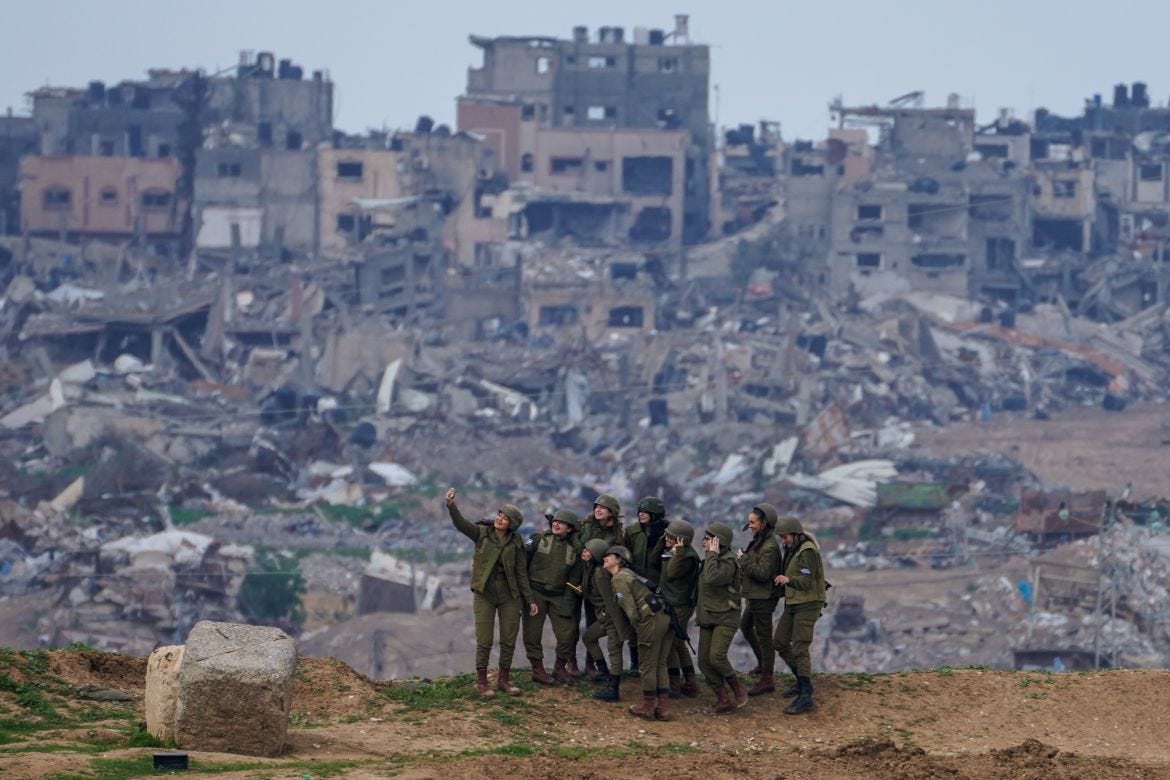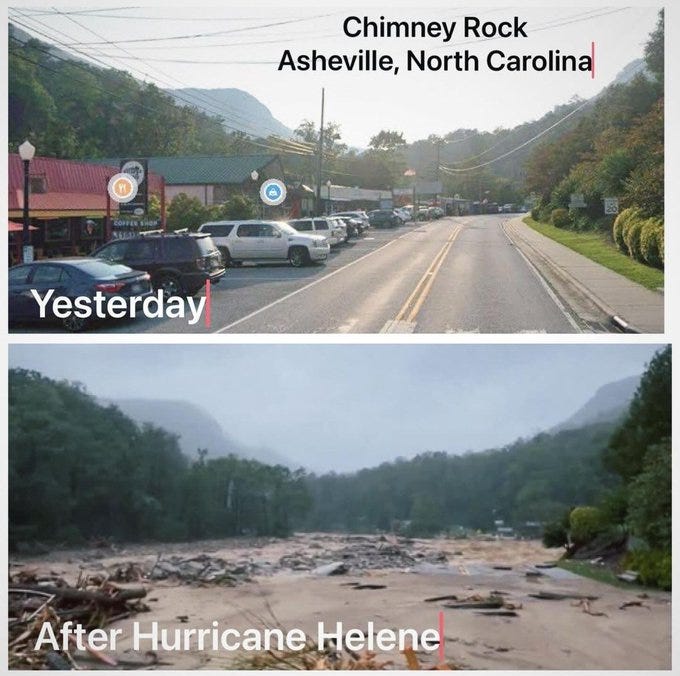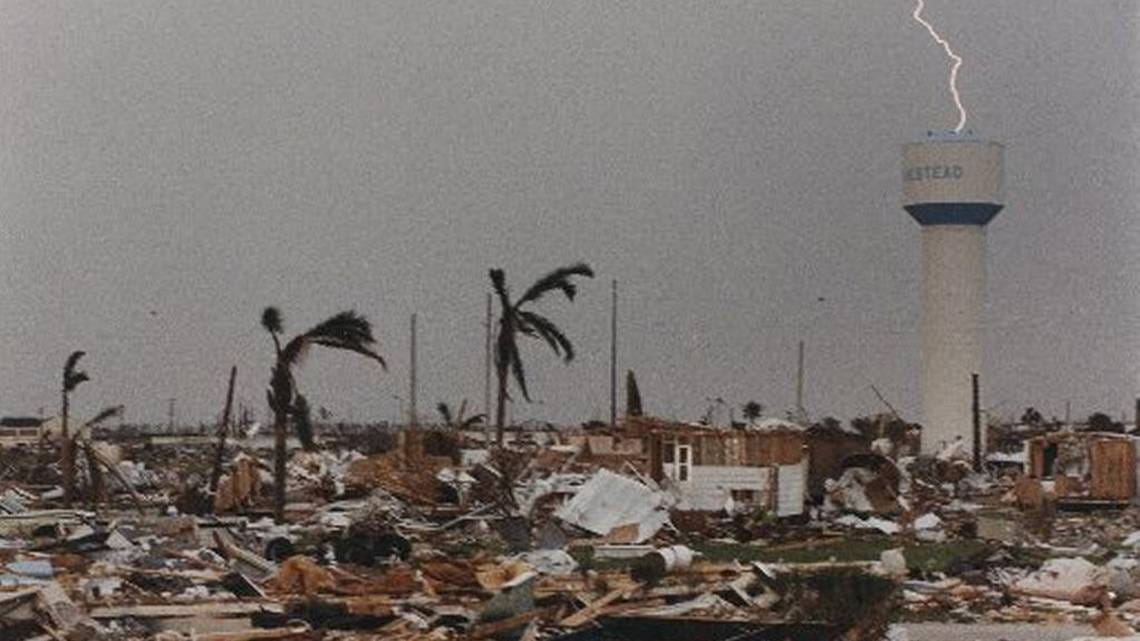I live on the East Coast of Central Florida. Our family is preparing for Hurricane Milton which is expected to strike the West Coast of our state, somewhere around Sarasota, as a category four hurricane with wind speeds between 130 and 156 mph. This means likely catastrophic destruction on our state's coast a short time after Hurricane Helene made its damaging imprint. Florida cities impacted by Helene haven't been able to dispose of all the debris, and some landfills have stopped accepting waste and scrap ahead of Milton. The uncollected debris will become ammunition for the new hurricane.

Our family and neighbors are preparing for a far less destructive category one experience on the East Coast. That means 50 to 60 mph winds with gusts exceeding 75 mph. Still, everyone is readying themselves for the inconveniences of the hurricane: business closures, disruptions of working life, canceled medical appointments, and home preparation.
On Tuesday, long lines formed at our gas stations and grocery stores as people secured essentials to ride out the storm winds and flooding. It's power outages that everyone dreads. Power outages mean a further disruption of ordinary life. No microwave, no air fryer, no stove. No way to heat up water. No coffee! No internet! (No Substack?!) Then there are the risks posed by tornados that often accompany hurricanes. They arrive in a flash and without much warning. Even a category one storm can cause costly damage to people's homes. And this is to say nothing of the homeless and others living in homes particularly vulnerable to damage who lack the means to leave town.

And still, it's hard not to contrast our experience with the suffering people are enduring in Gaza. On October 8th as I prepared my home for the hurricane I listened to and paused to watch a report of the latest in Israel’s bloody incursion into the Jabalia refugee camp. In the October 7th video we see a chaos of bloodied bodies carpeting a hospital floor as healthcare workers do what little they are equipped to do.1
On Wednesday as I finalized my preparation for the hurricane and keep on the lookout for weather reports, I read of Israeli tanks and soldiers encircling the Kamal Adwan Hospital in Jabalia, forcing the perilous evacuation of newborns, the sick, and the injured. As people on the West Coast of Florida bunker down in secure shelters, I read that the Israeli military has forced UNWRA to shut down seven schools and expel those sheltering there.2
While my community and those around my state prepare for disaster, I can't help but contrast our experience with that of the people in Gaza. Estimates are that 81 percent of buildings in Gaza have been destroyed by Israeli bombardment. It’s difficult to imagine what it would feel like to wake up and walk out into a place you’ve called home for your entire life and not be able to recognize it.

Survivors of catastrophic hurricanes know something about this experience, actually. Many people in the Western Carolinas are now reeling from Helene’s reshaping of their communities. Helene nearly wiped the small town of Chimney Rock “off the map,” as the Associated Press put it.

I also know something about this disorienting experience. When I was a teenager, my family made the retrospectively poor decision to stick it out in Homestead, Florida for the devastating category 5 hurricane named Andrew. Our 1950s concrete block home provided a safe haven from the storm’s ravages. It also became a refuge, even, to our neighbor who abandoned their crumbling home during the eye of the storm. But the next day we found ourselves in an alien environment. Our hometown was unrecognizable. It was as though a bomb had gone off. I remember climbing into what remained of my treehouse and thinking how strange it was to be able to see for miles and miles all around. The view was paved by thousands of felled houses and trees.

And yet, even catastrophic hurricane experiences like these cannot equip us to understand other aspects of what the people of Gaza are going through. Without at all minimizing the very real stress, concern, and harm on many people's minds in my community, I’m left asking, what is it like to try and protect yourself from a military instead of a hurricane?
Hurricanes are unpredictable. They change at a moment's notice. That unpredictability is unsettling and difficult to prepare for. But what would it feel like to face a destructive force that used bombs instead of wind, that exploded rather than tore away at the outer walls and roof of your home, that put you in its crosshairs?
What would it feel like to replace the confident expectation that the natural aerial assault of a hurricane would eventually subside after a certain number of hours with a relentless military campaign that refused to allow the sunshine or blue skies in for an entire year?
What would it feel like to lose power and conveniences for not only a day but in perpetuity? To lack basic, reasonable access to something as simple as a bathroom for months on end.
During a hurricane, you can always go to a shelter, even though they may not be comfortable places to stay. And you can rest assured they are safe from outside elements. But nowhere in Gaza is safe from the reach of the U.S.-supplied Israeli military. It targets hospitals and shelters, the very places we in a hurricane can have faith will provide respite from the storm.
“Over the past year, in Gaza, homes, refugee camps, hospitals, schools, universities, bakeries, roads, stadiums, and archaeological sites have all been targeted and destroyed,” writes the 21-year-old Palestinian reporter, Abubaker Abed, drawing on his direct experience. “Gaza has lost almost all of its historic landmarks, including the Great Omari Mosque, the Islamic University of Gaza, Al-Yarmouk stadium, to name just a few.”
What must it feel like to know that wherever you go, even if you do have the resources, the man-made storm of militarism will follow you? Follow you home, to your house of worship, to your shelter, to your hospital. Hurricanes, when they destroy or kill, do so without intention, without consciousness. But the Israeli military is killing and destroying innocent life on purpose.3
A hurricane never means to kill or harm. You can't blame a hurricane. But we can and we must blame a military and it's suppliers when it targets shelters and hospitals; when it fails to consistently distinguish between combatants and civilians; when it kills tens of thousands of noncombatants.
For all the misery and death hurricanes are capable of producing, they don’t target children the way the Israeli military has. Dozens of American healthcare workers who volunteered at Gaza medical facilities report
“every one of us who worked in an emergency, intensive care, or surgical setting treated pre-teen children who were shot in the head or chest on a regular or even a daily basis.”
In their October 2, 2024 letter to the Biden-Harris administration, the medical professionals wrote, “It is impossible that such widespread shooting of young children throughout Gaza, sustained over the course of an entire year is accidental or unknown to the highest Israeli civilian and military authorities.”

I wish the people of my state the best during Hurricane Milton. I hope their storm shutters and sandbags hold up against Milton's howling winds and besieging storm surge. For folks on the coast, it's the storm surge that often proves most destructive. The inescapable reality is that many people (and animals) are going to lose a lot... flower gardens, favorite trees, businesses, homes, transportation. The costs will be immense. They will need a lot of help from not only family and insurance companies but also the federal government.
Yet the federal government is already in a pinch. At the start of October Homeland Security Secretary Alejandro Mayorkas stated that the Federal Emergency Management Agency (FEMA) lacks sufficient funding to make it through the hurricane season. This strangely brings us back to the man-made disaster that the U.S. government is helping to produce in Gaza.
Brown University's Costs of War Project’s October 7, 2024 report shows that U.S. taxpayers have spent nearly $23 billion to support Israel's onslaught in Gaza. A separate report notes that more than 41,000 Palestinian men, women, and children have been killed between October 7, 2023 and October 1, 2024. Another 10,000 Palestinians are missing and believed to be dead beneath the rubble. Medical workers with direct experience in Gaza and the West Bank estimate an additional 67,413 Palestinians were killed due to starvation, lack of access to care for chronic diseases, and other health conditions all brought about by Israel's military onslaught.





Despite being gripped by the tragic and insufferable destruction in Gaza for the last year, the truth is that I can't really fathom the experience. Even as our family prepares for Milton, I sit in the comfort of my home knowing that we can ride it out. Knowing that emergency services can do their job without being impeded or targeted by some destructive force. And should any of us be in immediate danger, we know there are people who can and will come to our rescue.
And so I am left with the awareness that as terrible as this hurricane will prove to be, it is but a gentle tap on the shoulder compared to the brutal assault happening now, day after day, in Gaza. But we need not minimize our stress, discomfort, or loss. No one wants to endure a devastating hurricane. We need only let our experience here in Florida and the Carolinas teach us to see and feel more fully the suffering of our human family in Gaza.
Invite Dr. Nall to Speak
Dr. Nall delivers energetic live presentations and engaging workshops on the subjects featured in Humanities in Revolt. Those interested in booking a workshop or talk can get in touch through Facebook or by leaving a comment.
One day earlier, on October 6, 2024, the Israeli military destroyed the al-Aqsa Martyrs Mosque, in Gaza’s last remaining city of Deir al-Balah, killing 26 people. Palestinian reporter, Abubaker Abed, 21, describes the horror of witnessing the aftermath: “I went to the scene. I wish I hadn't. What I saw made me lose my mind: pieces of flesh scattered all over the rugs, blood splashed over people's belongings, food and medicines crushed and burnt. The smell of blood is still haunting me.”
United Nations, "UN report: Israeli use of heavy bombs in Gaza raises serious concerns under the laws of war," June 19, 2024
Amnesty International, "Israeli air strikes that killed 44 civilians further evidence of war crimes – new investigation," May 27, 2024
B'tselem, "Soldiers who entered al-Birah shot a 12-year-old running home frightened by shots fired at stone-throwers, and then delayed his evacuation by ambulance," September 25, 2024
Amnesty International, "Israel/OPT: New evidence of unlawful Israeli attacks in Gaza causing mass civilian casualties amid real risk of genocide," February 12, 2024
Amnesty International, "Damning evidence of war crimes as Israeli attacks wipe out entire families in Gaza," October 20, 2023





Stay safe, Jeffrey. It's hard not to think of Gaza -- both the incredible suffering and the US's funding and arming of Israel.
Thank you! Please, take care of yourself, your family and your community in this difficult time ahead.
We watch in shock and helplessness the events that are taking place, at all levels, in your country... and like you elsewhere too...
What matters now, for you, is to ensure your safety and that of your loved ones... I wish you and all the people of your surrounding and state all the best...